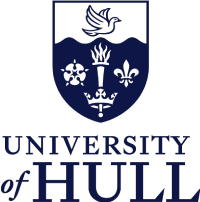About the Project
Adaptive Radiotherapy: Engineering the radiobiological tumour for improved radiation success
To celebrate the University's research successes, the University of Hull is offering a full-time UK/EU/International PhD Scholarship for candidates applying for each of the following projects as part of a new research cluster.
Closing date: Wednesday 23 January 2019
Studentships will start on 16th September 2019
Summary of Cluster
Radiotherapy is a key cancer treatment strategy, but remains an underrepresented area of research focus in the UK and worldwide. The Adaptive Radiotherapy PhD studentship cluster is focused on radiotherapy research training and capacity building at the University of Hull and in the Hull and East Yorkshire NHS Trust (HEYH-NHS). In this truly multidisciplinary cluster, students will have the opportunity to work with experts from a wide variety of areas, including cancer biology, cancer therapy, and radiobiology (Pires), radiosensitiser synthesis and validation (Boyle), development and validation of novel imaging tracers (Archibald), computational modelling in biomedical sciences (Turner), radiation treatment plan modelling and radiology (Beavis and Moore), clinical oncology (Lind and Roy). The students will be embedded in an active, dynamic, research environment, with access to all research facilities both at the University of Hull relevant to the cluster (Biomedical Sciences, Chemistry, Computer Science), as well as the Medical Physics facilities, Molecular Imaging Research Centre and instruments at Castle Hill Hospital.
PhD Project
Novel strategies for molecular imaging of the radiobiological tumour, with Professor Steve Archibald ([Email Address Removed]), Professor Andy Beavis, Dr Graham Wright and Dr Craig Moore
Although the impact of the radiobiological tumour microenvironment on radiation response is well established in the field, specific molecular imaging strategies remain elusive. Here, we propose to develop novel targeted imaging strategies for imaging the hypoxic microenvironment and biological features altered in cancers, such as expression of receptors, their ligands, and transporters. Radio-labelling strategies will be developed with 18F and 68Ga, including new redox sensitive approaches for hypoxia and receptor recognition. The compounds will be iteratively designed for optimal affinity/pO2 sensitivity and imaged preclinically to give information for adjustment of relevant parameters for targeted molecular imaging. Lead agents from in vitro studies will be translated preclinically using the pre-clinical irradiator and micro-PET/CT scanner to determine therapy response compared to the current state-of-the-art. Clinical translation will be planned with GMP tracer synthesis investigated in the new Molecular Imaging Research Centre (to be completed July 2019) at Castle Hill Hospital and the potential for first-in-man clinical studies¬. The successful candidate will be expected to have a strong interest in medicinal molecular science, medical imaging and/or cancer biology and relevant experience. The candidate must also show a willingness to work in a multi-disciplinary environment with NHS researchers, and embrace the area of preclinical and clinical medical imaging.
Applicants should have a 1st class undergraduate degree in in Chemistry, Biochemistry, Medical Imaging, Cancer Biology, Biomedical Science, or a related discipline, or a Masters level research qualification in a relevant discipline. A 2:1 may be considered, if combined with relevant experience.
To apply for these Scholarships please click on the link below.
https://www.hull.ac.uk/choose-hull/study-at-hull/admissions/postgraduate/how-to-apply.aspx
Full-time UK/EU and International PhD Scholarships will include tuition fees and maintenance (£14,777 in 2018/19) for three years, depending on satisfactory progress.
PhD students at the University of Hull follow modules for research and transferable skills development and gain a Masters level Certificate, or Diploma, in Research Training, in addition to their research degree.
Interviews will be held between 7th and 27th February 2019
Successful applicants will be informed of the award as soon as possible and by 15th March 2019 at the latest.

 Continue with Facebook
Continue with Facebook

